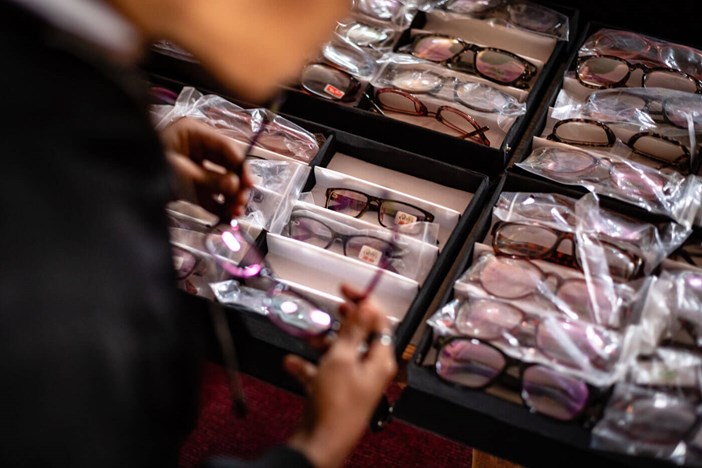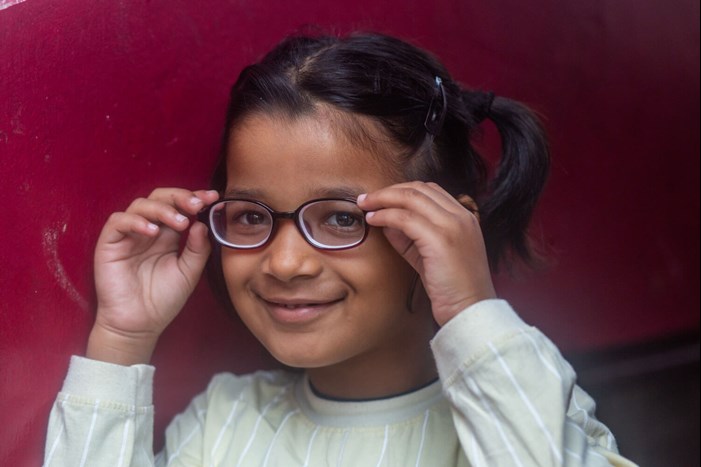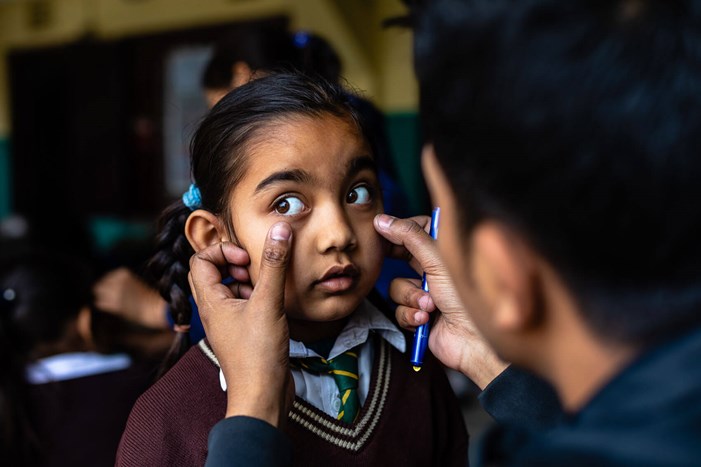Refractive error is the leading cause of visual impairment amongst children in the world today. It is a common condition that can cause blurred vision, and yet it can be corrected simply with a pair of glasses. Children living with visual impairment due to uncorrected refractive error are more likely to struggle at school, miss out on opportunities for further education, and may never reach their full potential. As adults, they will be less likely to find employment and be able to escape poverty.
Refractive error affects around 330,000 children in Nepal. A simple eye test and a £2 pair of glasses can be the difference between a child staying in school, securing employment and living life in a blur. Studies have also found that, in low- and middle-income countries, every £1 invested in eye health can generate £4 to the economy, helping to break the poverty cycle.
Out of 29.1 million of Nepal’s total population, 80% live in rural, remote areas, with limited access to quality eyecare services. With around 1.47 million visually impaired, increasing the availability and accessibility of eyecare services is therefore vital to helping more children reach their potential.

The REACH model
Leading eyecare charity Orbis and Nepal’s National Society of Comprehensive Eye Care (NNJS) have worked together since 2019 to implement a programme called REACH (Refractive Error Among Children) in Eastern Nepal. The programme was funded by donations, which were match-funded by the UK government (through the UK Foreign, Commonwealth & Development Office).
The REACH programme aimed to provide child eye health services to 969 schools in Nepal’s Siraha and Parsa districts, improve the quality of eyecare received, and ensure services were managed and delivered effectively and sustainably. Over three years 2019-2022, 330,000 eye tests for school-going children aged between 6-18 years were provided, 6476 spectacle glasses prescribed and 3083 children were diagnosed with other eye conditions such as cataracts and squint and then referred to local hospitals for further treatment.
Another sustainable outcome was strengthening the eye health network by training over 4000 people, from teachers to frontline health workers, on the importance of eye health. 168 female Community Health Visitors were also trained to provide eye tests in the local community for years to come.

Innovation in REACH
During the pandemic, when delivering eye tests within schools was not possible, Orbis adopted an innovative door-to-door approach which involved screening children within their homes.
The door-to-door model brought eye health services directly to families, identified children with refractive error who might have been missed in school screenings and raised an even greater awareness on the importance of eye health.
The change also brought the programme closer to communities, breaking barriers for women and marginalised groups.

The REACH legacy
The programme was funded by donations, which were match-funded by the UK government.
With this help, and the success of REACH, Nepal’s government has identified the need to integrate eye health into school health programmes across the country so that crucial screenings will continue to be available to all children. This means that thousands more children will have opportunities to learn, earn, innovate and lead fulfilling lives.
Orbis and NNJS have also equipped five primary eye centres to provide services to the whole community going forward.
How working in partnership in Nepal is helping to improve education
The REACH programme has helped to improve the lives of thousands of children living with refractive error in Nepal including seven year-old Aadya.
Over 12 months, Aadya’s vision blurred, and it became difficult for her to see, which meant she struggled at school. Aadya was able to access vision screening at her school through REACH where she was diagnosed as short-sighted. She was prescribed a free pair of glasses which she could pick up herself.
Aadya’s father, Ajay, said: “I could see the transformation in my daughter immediately. Now she can see clearly and writes better with fewer corrections. The impact this is making on her education is very clear.”
Orbis UK Head of Programme Funding Kate Gannon, said: “This partnership with NNJS has helped to provide essential eye services to many children living in Nepal. It is through donations from our supporters and the UK government’s match funding that we have been able to provide our partners with equipment and training to deliver eyecare to children within schools, the community and door-to-door, protecting their education and futures.”



